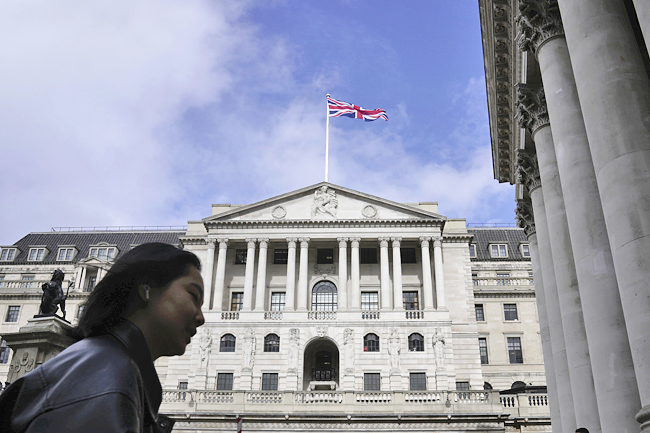LONDON (AP) – The Bank of England is set to raise interest rates to their highest level since late 2008 as it continues to combat stubbornly high inflation in the United Kingdom (UK).
Financial markets expect the bank’s nine-member Monetary Policy Committee to lift its main interest rate by a quarter of a percentage point to 4.5 per cent, its 12th straight increase.
Other major central banks, such as the United States (US) Federal Reserve and the European Central Bank, have also been raising interest rates at a consistent pace in order to get inflation rates down from multi-decade highs.
The Bank of England started raising interest rates in late 2021 from a low of 0.1 per cent in order to keep a lid on price rises that were first largely stoked by bottlenecks resulting from the lifting of coronavirus lockdown restrictions and subsequently by the invasion of Ukraine, which led to energy prices surging.
Alongside its interest rate decision, the bank will be publishing its quarterly economic projections for the stagnating UK economy. With inflation currently running at a higher-than-expected annual rate of 10.1 per cent, economists will be interested to see how quickly the bank expects inflation to get back toward its target of two per cent. If it thinks inflation will fall rapidly over the coming months, the pressure on it to raise interest rates further will likely diminish.
“While a hike this week looks – almost – like a done deal, the outlook for further hikes thereafter remains uncertain,” said senior economist at Berenberg Bank Kallum Pickering.
Those looking to get on the housing ladder or to take out loans will be hoping that the anticipated increase will be the last in the current cycle.



